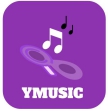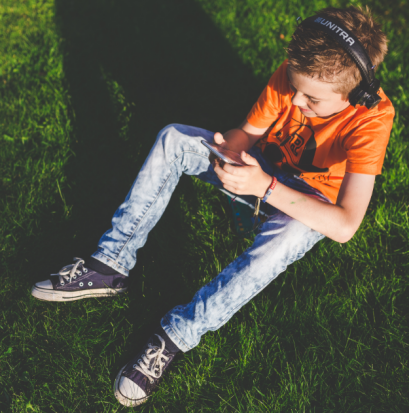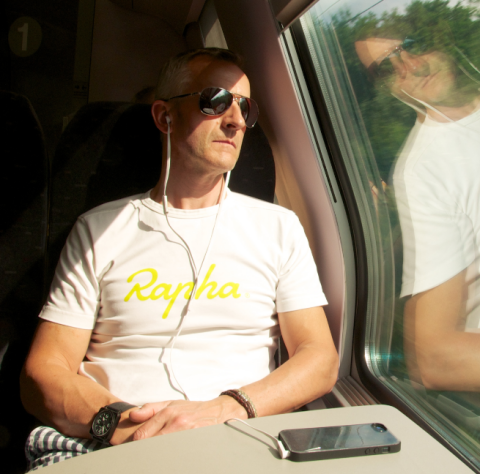Your personal music search space.
Augment your understanding of music.

______________________________________________________________________________

YMUSIC SEARCH ENGINE
MUSIC AND SENSIBILITY: HEARING AND THE BODY
Music is more than a casual leisure, an art or the new way to increase the benefits of a company. It is all of that and even more. The music industry is a rich ecosystem in which everyone and everything has a specific place. From the composer to the listener, from psychology to spirituality, from art to science, get insights on each field of music, learning about craft or history, about human behavior or consciousness. A place is also given to ethical questions.
MUSICAL CULTURE IN ITS VARIOUS ASPECTS


Do you want to listen to styles of music that the music that your parents’ generation used to listen to? Try YMusic, your free personal assistant (it includes musical criteria to select music), and find some music genres that they and you were fond of.
The music listening experience in the intimacy of the home
Music listeners and their family
The multiplicity of the musical experience that music listeners may have is real and, sometimes, different parts of that experience may enter into conflict. Music listening is not a monolithic experience and, talking with music listeners, one question arises: how do the relationships with music change in the life of an individual and between generations? There is no single answer. It depends on musical skill acquisition, intergenerational learning or communication within families: these criteria help to distinguish what and who influences the acquisition of music values. Also, music production is constantly renewed.
How do families talk about music? How do they construct a discourse which contains values and judgments on music? And above all, what type of music is played, in the house or in the car? What music are children allowed to listen to? These are not idle questions. In fact, not all styles of music are allowed in all families and even today, it may happen that some people, within families, take decisions related to music and not only in families where both parents are musicians, or one of them. It is a way for parents to suggest specific forms of music socialization and to transfer their tastes.
In their house, parents provide the first musical exposure to their children, choosing what children will listen to, for how long, how often and when. That attitude shapes the first music listening experiences of their children: parents give them music listenership guidelines, pieces of advice that are not rigid rules, drawing a musical landscape where passive and active music exposures may combine.
The music listening of children is active because they interact with music to which they listen: music may tell them something about themselves and also about their family.
The music of one's parents
Studies show that people may feel nostalgia for the music they discovered with their parents: it seems that early music memories, which are generally rooted in families, are often kept by people in their musical baggage. They are part of their musical taste, which may be defined as an individual’s conscious, general and self-determined tendency to love certain pieces of music and reject other ones.
Musical taste is more or less developed in individuals, depending on their background, but also their own attitude towards music when they are grown up. That taste is a combination of various musical selves. It is an ensemble of preferences that have stood the test of time. Home being the place where, generally, relationships have stood the test of time, it is somehow natural that music heard at home continues to be appreciated by children when they have left home: that music is part of what sociologists call ‘family scripts’ or family mythologies.

Do you want to enrich your music listening experience, whatever the style of music technology you use? Try the YMusic search engine, your free personal assistant (it includes musical criteria to select music), and enjoy the music.
Music listeners' archives and diaries
Today’s technology lets music listeners create their own music diaries. Music listeners have their own digital archives, that are part of their everyday listening experience, as they build them on the way home or on the bus or train. Listeners enter into contact with music just as they can reach people: in a free and spontaneous way. Pieces of music being as numerous as people in the street, listeners retain all sort of memories. As they remember one face, one conversation, they have memories of one song title or one great meeting with a voice. In one word, any contact with any musical item may be unique, as may any human meeting: brief of long, insignificant or intense, fortunate or not.
And as they take care of their relationships, music listeners curate their music listening experience: they attribute a personal value to each piece of music they hear; they make their listening experience meaningful, operating choices through online music catalogues. Not all listeners are the same. Their relationship to online music depend on their relationships with technology and what, in terms of sounds, they allow or not: there are avid new media users, listening to music on a smartphone, tablet or computer; there are mixed-media users, who are technologically fluent but generally listen to music at home, and finally there are old media users, who give their preference to traditional radio.
Music listening patterns from memory to identity
The types of listening sensibilities that these listeners develop is thus conditioned by the devices they use in their everyday lives. They develop specific listening habits, that are also related to their identities. For example, the time span during which they love to listen to music will vary according to their personal tastes and the place they attribute to music in their own life, that includes social, psychological and physiological aspects.
It is interesting to notice that, from sensory awareness that the direct use of devices induces, in terms of music listening, the re-play of specific pieces of music, and also reflection, experiment and analysis are the subsequent stages that already enrich the music listening experience. They are not pure curation activities, but they help listeners to enter into a process where they can judge the quality of the pieces of music they are listening to. They give a more analytical, exploratory, narrative and aesthetic dimension to their listening. It of course leads to a more personal knowledge of each piece of music.
Is curation useful to enhance the music listening experience?
Do you want to acquire new auditory knowledge? Try the YMusic search engine, your free personal assistant (it includes musical criteria to select music), and enhance your music listening experience!
Auditory knowing in the everyday life and the value of music
During the 20th century, the fact that sound may be recorded has created a commercialization of the music listening experience. This has been democratized and music consumption has been generalized. Does the stockpiling and commodification of music reduce the value of musical expression and the music listening experience? What is the meaning and value of music?
Did music become ‘furniture music’, to name a piece of music written during the 1920s by composer Erik Satie? In shopping centers, commercial music background systems intend to create a music listening experience that would subliminally lead to consumption. The commercialization of music has also led to sound creation whose target is to support products’ use, as it is the case in gaming, where video game music helps the listener to relate to spaces, characters and narratives presented by a game. So, even if music has become usual in various environment, it does not mean that it has lost all value. The value of music is no longer only created in fixed places like conservatories or concert halls, that is all.
The creation of private acoustic spaces to manifest the love of music
For a specific type of music listener described as ‘audile’, music may be important. An audile is a person that tends to rely on auditory images more than on visual and tactile stimuli. Audiles prefer acquiring auditory knowledge more than any other type of knowledge. In common parlance, an ‘audile’ is often named a ‘music lover’: the music lover is someone that dedicates much time to music listening, trying to know more every day. Being an audile is an individual process: the audile constructs and inhabits a private acoustic space, using the existing technologies to achieve that target: before there was the walkman, now there are mobile devices like iphones, tablets, etc. Portable audio, now associated with the iPod, may be said to be an experience of freedom, whatever pessimists may say. It does not alter the relationship between people: when people want to communicate, they are never prevented from doing it because of some device, but because entering into an authentic relationship is difficult, whatever the nature of the relationship is.
Portable technologies just allow a new cultural type of music listening to emerge. Also, they have not interfered with the uniqueness of the various musical productions, that uniqueness being given by the acts of composition, performance and listening. On the contrary, they allow to emerge a transformation of relationships between music listeners and music, helping them to create a way of being in the world and creating a social experience, even when their ears are focused on music. These listeners develop portable listening strategies which enhance the quality of their musical experience: they control their time, enhance their mood, avoid noisy surroundings and counteract boredom. In one word, they control their cognitive activity.
Everyday music listening at the crossroads of technology and hearing

Do you want to connect with sounds in order to know them better? Try the YMusic search engine, your free personal assistant (it includes musical criteria to select music), and transform your music listening experience!
Do music and sound heard via mobile devices help listeners to enhance everyday life?
Soundscape recordings and the creation of social everyday life
Recent studies show that companies involved into the field of mobile hardware and media hav) become more and more aware of the intrinsic attractiveness of recording technologies. For example, microphones may offer fresh ears to sound engineers and to music and sound listeners. They may help to alter listening sensibility in terms of transforming listening sensibility, transforming passive hearing into active listening, enhancing interactions between sounds and listeners.
It becomes evident that, in the field of listening, mediated sensory experience may enhance the daily routine of living amongst listeners: for instance, everyone having a smartphone has a full set of audio recording possibilities. It seems that mobile telephony is really used by people to create soundscapes. They want to capture sensory experience in order to participate in the cultural creation of a social life and soundscapes are part of their creations. In doing so, they create a new auditory currency.
Is listening to music on mobile really new and different?
Audio recordings within the daily frameworks of listeners help them to attribute meanings to these frameworks. But where do listening, everyday life and technology meet, exactly? First in the chosen moments when listeners give their attention to music and sound. Does the perception of sounds and music enhance consciousness? Apparently yes. The quality of acoustic experience through the various devices is higher nowadays than in recent decades. Before, listening was already mediated by the structures of the various environments and even by the temperature. But modern devices offer listeners the possibility to shape their sonic environment.
In today’s contexts, sound and music may be a route to knowledge, a way to be in the world, an element constituting the identify(identity), a way to enter into dialog or means to unite a community. Thus they are part of the being. And now, with electronic musical instruments and devices, the human experience of music listening is transformed, because all those devices help people to structure themselves and the way they see the world. That is especially true for mobile devices.
In contemporary societies, music listening is linked to the awareness of the omnipresence of beings and things, and to an openness to a wide variety of beliefs and lifestyles. Musical lyrics sung by pop stars, whose voices may be heard everywhere at any time, may be related to a social cause or defend a religion. And as sound and music are stored online, they are accessible by anyone at any time.
Sound, that is physically embodied, is also the place of inter-subjectivity, as philosophers interested in phenomenology say: the bodies of music listeners are connected to external sonic environments. And devices offer to all listeners a possibility to co-create sounds and music: listeners can become soundmakers, wherever they are.
Do music and sound heard via mobile devices help listeners to enhance everyday life?